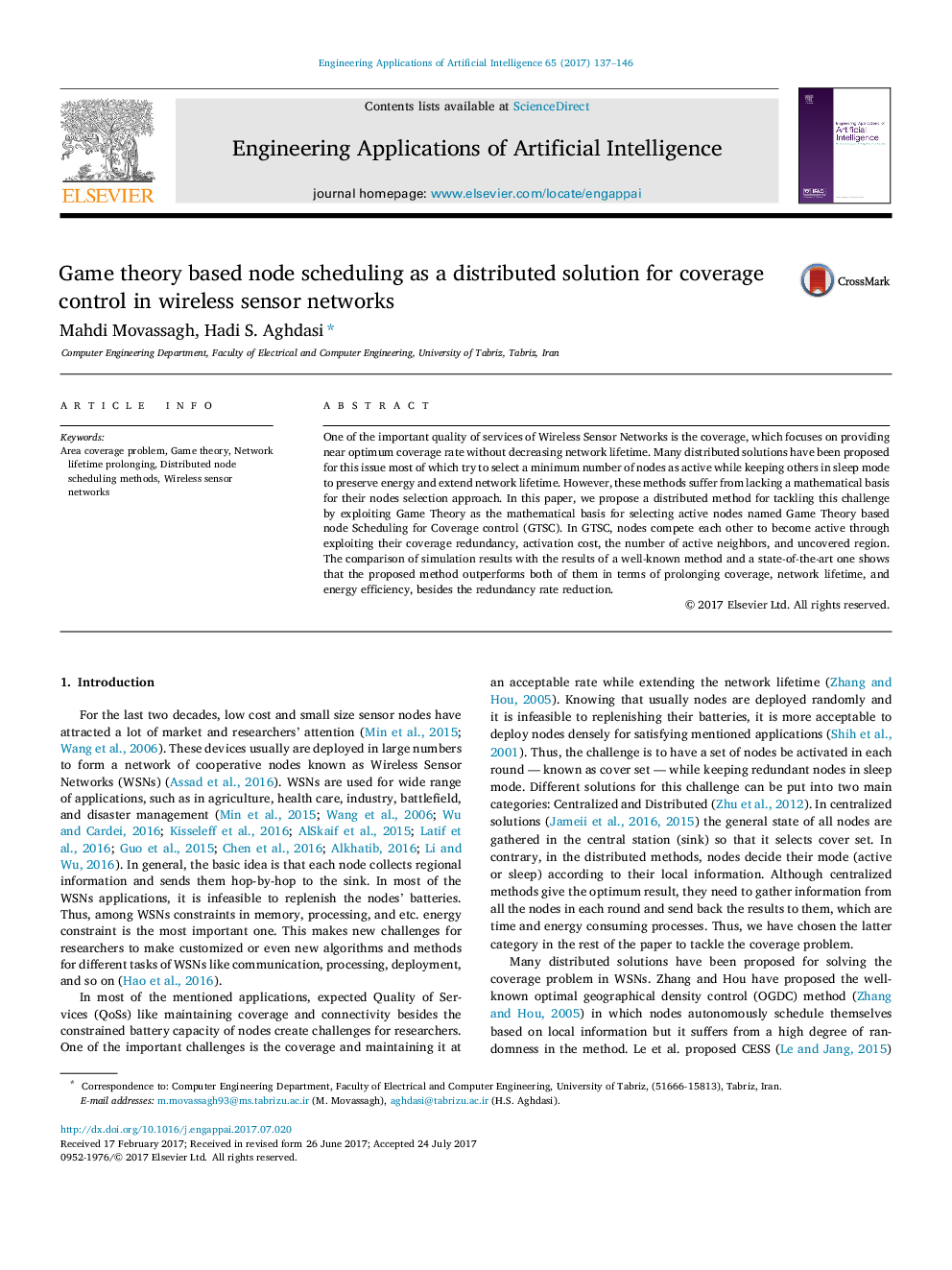| Article ID | Journal | Published Year | Pages | File Type |
|---|---|---|---|---|
| 4942590 | Engineering Applications of Artificial Intelligence | 2017 | 10 Pages |
Abstract
One of the important quality of services of Wireless Sensor Networks is the coverage, which focuses on providing near optimum coverage rate without decreasing network lifetime. Many distributed solutions have been proposed for this issue most of which try to select a minimum number of nodes as active while keeping others in sleep mode to preserve energy and extend network lifetime. However, these methods suffer from lacking a mathematical basis for their nodes selection approach. In this paper, we propose a distributed method for tackling this challenge by exploiting Game Theory as the mathematical basis for selecting active nodes named Game Theory based node Scheduling for Coverage control (GTSC). In GTSC, nodes compete each other to become active through exploiting their coverage redundancy, activation cost, the number of active neighbors, and uncovered region. The comparison of simulation results with the results of a well-known method and a state-of-the-art one shows that the proposed method outperforms both of them in terms of prolonging coverage, network lifetime, and energy efficiency, besides the redundancy rate reduction.
Related Topics
Physical Sciences and Engineering
Computer Science
Artificial Intelligence
Authors
Mahdi Movassagh, Hadi S. Aghdasi,
